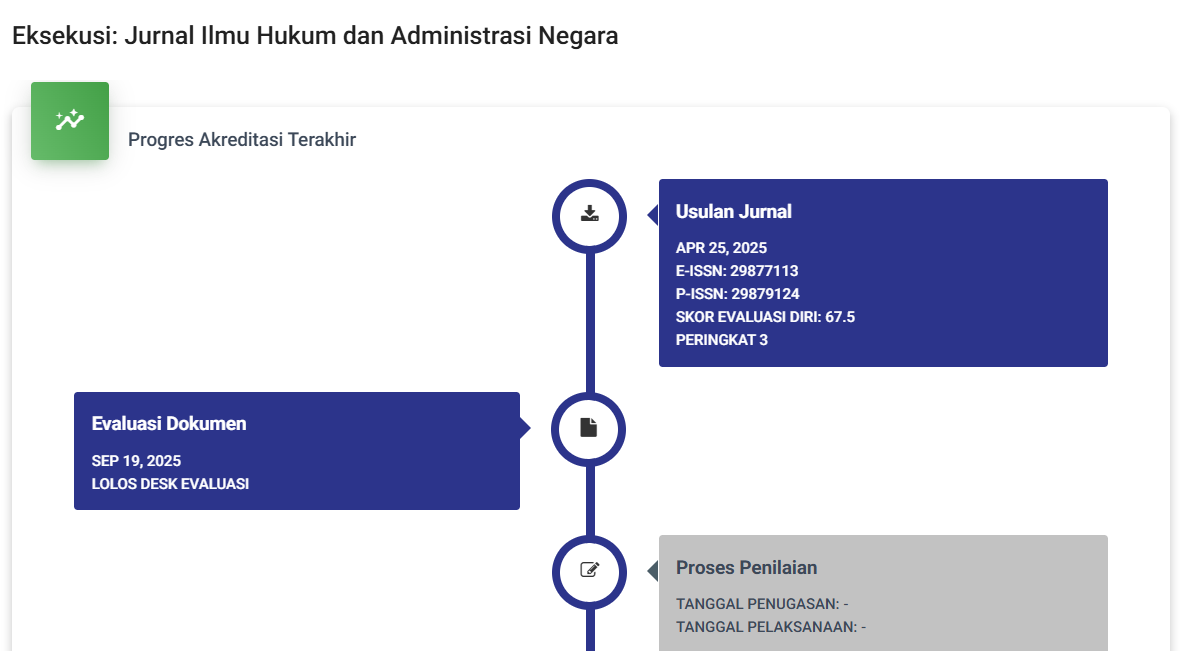Efektivitas Hukum Perlindungan Konsumen Dalam Bisnis Investasi Online
DOI:
https://doi.org/10.55606/eksekusi.v3i1.1653Keywords:
Consumer protection, Online investment, Fraud, Financial Services Authority, Financial literacyAbstract
Consumer protection in online investment businesses in Indonesia has become an important issue as cases of investment fraud increase. This study analyzes the impact of fraud on investor trust and the financial losses incurred. The QNet and MeMiles cases serve as real examples of how unrealistic profit promises can harm many individuals. Recommendations for regulatory improvements include strengthening the legal framework, enhancing the capacity of the Financial Services Authority (OJK), and promoting financial literacy. With these measures, it is hoped that a safer and more transparent investment environment can be created. This research emphasizes the importance of collaboration between authorities and the public to monitor fraudulent practices and raise awareness of investment risks. Through a comprehensive approach, Indonesia can build a more trustworthy investment ecosystem and support sustainable economic growth.
References
Adnan, A., Manap, N., & Zakaria, Z. (2023). Increase in online purchase fraud cases: Business ethics vs consumers’ attitudes. International Journal of Academic Research in Business and Social Sciences, 13(6). https://doi.org/10.6007/ijarbss/v13-i6/16809
Akmal, M. (2024). Pengawasan terhadap praktik money game dengan skema ponzi di platform tiktok ditinjau dari undang-undang nomor 21 tahun 2011 tentang otoritas jasa keuangan. Bandung Conference Series Law Studies, 4(2), 1111-1118. https://doi.org/10.29313/bcsls.v4i2.15717
Andikatama, A. (2024). Consumer protection law in the digital era. International Journal of Social Science and Human Research, 7(07). https://doi.org/10.47191/ijsshr/v7-i07-03
Andikatama, A. (2024). Consumer protection law in the digital era. International Journal of Social Science and Human Research, 7(07). https://doi.org/10.47191/ijsshr/v7-i07-03
Arifin, R., Kambuno, J., Waspiah, W., & Latifiani, D. (2021). Protecting the consumer rights in the digital economic era: Future challenges in Indonesia. Jambura Law Review, 3, 135-160. https://doi.org/10.33756/jlr.v3i0.9635
Balogun, O. (2024). Internet users’ perception of the prevalence of online investment fraud and victimisation in Nigeria. GUJOS, 4(2), 169-181. https://doi.org/10.57233/gujos.v4i2.13
Bessie, J. (2023). Consumer protection for losses arising from the use of auto pilot-based technology in Indonesia. Policy Law Notary and Regulatory Issues (Polri), 3(1), 106-112. https://doi.org/10.55047/polri.v3i1.964
Bessie, J. (2023). Consumer protection for losses arising from the use of auto pilot-based technology in Indonesia. Policy Law Notary and Regulatory Issues (Polri), 3(1), 106-112. https://doi.org/10.55047/polri.v3i1.964
Carey, C., & Webb, J. (2017). Ponzi schemes and the roles of trust creation and maintenance. Journal of Financial Crime, 24(4), 589-600. https://doi.org/10.1108/jfc-06-2016-0042
Choi, J., Kruis, N., & Choo, K. (2021). Explaining fear of identity theft victimization using a routine activity approach. Journal of Contemporary Criminal Justice, 37(3), 406-426. https://doi.org/10.1177/10439862211001627
Damaini, A., Nugroho, G., & Suyoto, S. (2018). Fraud crime mitigation of mobile application users for online transportation. International Journal of Interactive Mobile Technologies (Ijim), 12(3), 153. https://doi.org/10.3991/ijim.v12i3.8070
Gillespie, A., & Magor, S. (2019). Tackling online fraud. Era Forum, 20(3), 439-454. https://doi.org/10.1007/s12027-019-00580-y
Haryadi, B., Wahyudi, I., & Hayati, N. (2022). Uncovering the dark side of Ponzi schemes through money game. Jurnal Ilmiah Akuntansi Dan Bisnis, 17(2), 201. https://doi.org/10.24843/jiab.2022.v17.i02.p02
Hidajat, T. (2018). Financial literacy, Ponzi and pyramid scheme in Indonesia. Jurnal Dinamika Manajemen, 9(2), 198-205. https://doi.org/10.15294/jdm.v9i2.16261
Hidajat, T. (2018). Financial literacy, Ponzi and pyramid scheme in Indonesia. Jurnal Dinamika Manajemen, 9(2), 198-205. https://doi.org/10.15294/jdm.v9i2.16261
Hidajat, T., Primiana, I., Rahman, S., & Febrian, E. (2020). Why are people trapped in Ponzi and pyramid schemes? Journal of Financial Crime, 28(1), 187-203. https://doi.org/10.1108/jfc-05-2020-0093
Kerti, N. (2023). Consumer protection institutions strengthening in the digitalization era. Indonesian Journal of Multidisciplinary Science, 3(1), 55-63. https://doi.org/10.55324/ijoms.v3i1.675
Kerti, N. (2023). Consumer protection institutions strengthening in the digitalization era. Indonesian Journal of Multidisciplinary Science, 3(1), 55-63. https://doi.org/10.55324/ijoms.v3i1.675
Kharisma, D. (2020). Urgency of financial technology (Fintech) laws in Indonesia. International Journal of Law and Management, 63(3), 320-331. https://doi.org/10.1108/ijlma-08-2020-0233
Kharisma, D. (2020). Urgency of financial technology (Fintech) laws in Indonesia. International Journal of Law and Management, 63(3), 320-331. https://doi.org/10.1108/ijlma-08-2020-0233
Matnuh, H. (2021). Rectifying consumer protection law and establishing a consumer court in Indonesia. Journal of Consumer Policy, 44(3), 483-495. https://doi.org/10.1007/s10603-021-09487-z
Nainggolan, B. (2023). Guarantee of legal protection in cross-border electronic transactions. Journal of Law and Sustainable Development, 11(12), e2700. https://doi.org/10.55908/sdgs.v11i12.2700
Noor, A., Ahamat, H., Marzuki, I., Wulandari, D., Junaidi, A., Lisdiyono, E., … & Trisnawati, B. (2021). Regulation and consumer protection of fintech in Indonesia. Linguistics and Culture Review, 6, 49-63. https://doi.org/10.21744/lingcure.v6ns3.1938
Noor, A., Haron, N., Rohani, S., & Rahman, R. (2022). Covid-19 pandemic and online fraud: Malaysian experience. International Journal of Academic Research in Accounting Finance and Management Sciences, 12(4). https://doi.org/10.6007/ijarafms/v12-i4/14172
Norris, G., Brookes, A., & Dowell, D. (2019). The psychology of internet fraud victimisation: A systematic review. Journal of Police and Criminal Psychology, 34(3), 231-245. https://doi.org/10.1007/s11896-019-09334-5
Nurzakiah, N. (2024). Criminal accountability false investments with Ponzi schemes in Indonesia. Kne Social Sciences. https://doi.org/10.18502/kss.v8i21.14809
Pakadang, G. (2024). Application of federated learning for smart agriculture system. Journal of Legal Subjects, (43), 36-47. https://doi.org/10.55529/ijitc.43.36.47
Reyns, B. (2011). Online routines and identity theft victimization. Journal of Research in Crime and Delinquency, 50(2), 216-238. https://doi.org/10.1177/0022427811425539
Rongiyati, S. (2019). Pelindungan konsumen dalam transaksi dagang melalui sistem elektronik (Consumer protection in e-commerce). Negara Hukum Membangun Hukum Untuk Keadilan Dan Kesejahteraan, 10(1), 1-25. https://doi.org/10.22212/jnh.v10i1.1223
Rongiyati, S. (2019). Pelindungan konsumen dalam transaksi dagang melalui sistem elektronik (Consumer protection in e-commerce). Negara Hukum Membangun Hukum Untuk Keadilan Dan Kesejahteraan, 10(1), 1-25. https://doi.org/10.22212/jnh.v10i1.1223
Sakti, M. (2024). Consumer protection and organizers' responsibilities for concert cancellations in Indonesia. International Journal of Business Law and Education, 5(1), 1471-1476. https://doi.org/10.56442/ijble.v5i1.495
Sakti, M. (2024). Consumer protection and organizers' responsibilities for concert cancellations in Indonesia. International Journal of Business Law and Education, 5(1), 1471-1476. https://doi.org/10.56442/ijble.v5i1.495
Siregar, P. (2023). Online fraud protection: Law, policy, and regulation. Indonesian Journal of Legal Studies, 15(7), 30-45. https://doi.org/10.26889/ijls.v15i7.1855
Wang, P. (2021). Ponzi schemes: A comparison of China and United States legal frameworks. Journal of Financial Crime, 28(4), 1062-1074. https://doi.org/10.1108/jfc-03-2021-0075








